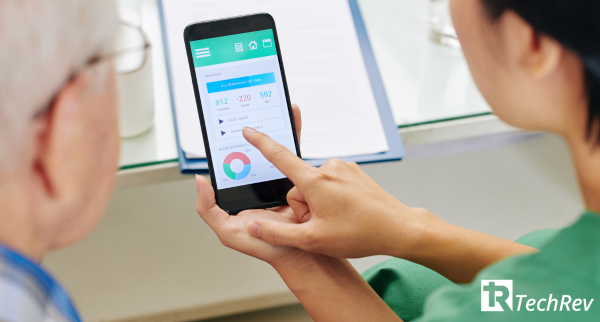Earlier, hospital visits and physician consultations used to be long line queues and impatient waiting areas. But now, improved situations in terms of technology have been introduced to both doctors and patients with healthcare apps.
They are becoming important and proactive solutions to understand the current medical condition of patients. And further put efforts to reverse the bad state into satisfactory and make medical and healthcare business better.
Fact:
There is a report that states that by the year 2025, the digital health market can go up to 660 billion dollars. Additionally, users of healthcare app installation would be people from 18 to 29, that is 17%.
Henceforth, the handheld device is now not limited to making calls but improves communication and data management for the healthcare sector.
Read this blog to explore the current state of the healthcare app market, who benefits from android apps for patient care, and the key reasons why investing in one is essential.
Current State of Healthcare Market Android App Development
Smartphone is gaining popularity and it is driving the current state of healthcare industry. Population of America is preferring a digital solution for their medical needs. To keep regular check on their vitals such as heart rate, blood pressure, or oxygen level. They are looking for the wearables or a solution where they can keep records with ease and share them with their physicians.
Taking numbers into note, there are recently 97000 apps related to health and fitness. And, it is observed that 1000 new applications developed and published on app stores. Further, it will increase every year. In addition to this, there are 1,65,000 mobile healthcare apps. They are developed in both iOS and Android platforms making easy for physicians to leverage them and improve patient care.
However, despite large number of healthcare application in the market the demand for more and high quality solution application is no less. The reason is many apps fall in short of expectation. From slow navigation, poor UI to unavailability of features impacts physicians experience.
Furthermore, physicians offering their services in cardiology often seem disappointed as there are very few digital solutions they can utilize. And help them have assistance in conducting their healthcare from the office or remotely.

Mobile Health Components and Features Which Can Help Physicians for Patient and Cardiac Care
Building healthcare android app technology is revolutionizing patient care by making it easier for physicians to monitor and manage health conditions remotely. Unlike traditional telehealth systems that rely on fixed workstations, mobile devices like smartphones and tablets offer a more flexible, cost-effective, and accessible way to connect with patients.
Android telemedicine app development, in particular, offers powerful features that enhance patient engagement and streamline clinical interventions:
- Voice/Video Calling – Let physicians to perform remote consultations, allowing doctors to assess patients without requiring in-person visits.
- Text & Multimedia Messaging (SMS/MMS) – To makes patients easy to understand about their health condition integration of this feature allows to share educational content, semd medication reminders, and motivational messages to encourage better patient adherence.
- Multimedia Access – Patients can watch videos and access updated health information anytime, helping them stay informed about their condition.
- Built-in Sensors – Features like motion tracking, GPS, and touch sensors can help monitor physical activity and lifestyle habits, providing valuable insights for care.
- Device Connectivity – Mobile apps can sync with health monitoring devices like ECG and blood pressure monitors, enabling real-time data transfer and reducing manual errors.
- Internet Connectivity – With Wi-Fi and mobile networks, patients and physicians can access health data, communicate seamlessly, and stay connected to essential resources.
For cardiac care, android telemedicine app development serve as a bridge between patients and healthcare providers. Patients can use wireless monitoring devices at home to track their blood pressure and ECG readings, with data automatically sent to a secure mobile app.
Physicians can then review the data, schedule virtual consultations, and send medication reminders or care instructions. The app also allows patients to monitor their progress, receive feedback, and stay connected with their doctors, making self-care and remote management more effective and personalized.
Conclusion
Android apps for patient care are revolutionizing cardiac care and patient management by offering real-time monitoring, remote consultations, and improved patient engagement. With the growing demand for digital healthcare solutions, building healthcare Android app solutions provides a seamless way for physicians to track vitals, analyze patient data, and offer timely interventions, reducing the burden on traditional healthcare systems.
As technology continues to advance, Android telemedicine app development will play a crucial role in enhancing patient care, making healthcare more accessible and efficient. Investing in high-quality healthcare Android apps is not just a trend but a necessity to improve medical outcomes and patient satisfaction.
